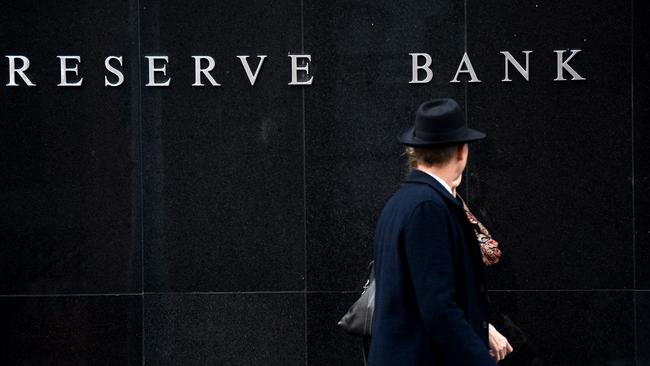RBA keeps official interest rate unchanged at June meeting
The RBA stuck to its script at its June meeting ahead of the review of its unconventional monetary policy that it’s flagged for next month.

The Reserve Bank left its monetary policy settings unchanged as expected after its monthly board meeting for June.
“At its meeting today, the board decided to maintain the current policy settings, including the targets of 10 basis points for the cash rate and the yield on the 3-year Australian Government bond, as well as the parameters of the Term Funding Facility and the government bond purchase program,” RBA governor Philip Lowe said in a statement.
The official cash rate has been set at 0.1 per cent since November.
The RBA’s June board meeting wasn’t expected to reveal much, since the central bank provided updated economic forecasts last month and said it would decide what to do with its unconventional policy settings at its July meeting.
But the Aussie dollar fell from US77.59c to US77.38c and the share market recovered from a dip, suggesting the market was expecting slightly hawkish commentary from the RBA.
Last month the US Federal Reserve revealed that officials wanted to discuss a tapering of its quantitative easing program at its upcoming meetings, and the Reserve Bank of New Zealand indicated that rate hikes could potentially start in the second half of 2022.
While again noting that the global economy is continuing to recover from the pandemic and the “outlook is for strong growth this year and next”, the RBA repeated that the “recovery remains uneven” and “some countries are yet to contain the virus”.
The central bank’s forecasts for economic growth, unemployment and inflation were unchanged from a month ago when it gave updated forecasts.
But whereas in May it said Australia’s economic recovery has been “stronger than expected and is forecast to continue”, this month it added the qualifier “earlier”.
That seemed to downplay the recent strength of data including business conditions, employment and house prices.
The RBA noted that the domestic outlook is “supported by fiscal measures and very accommodative financial conditions”, but with Victoria back in lockdown in the past week, it said “an important ongoing source of uncertainty is the possibility of significant outbreaks of the virus, although this should diminish as more of the population is vaccinated.”
Still, it did note that “progress in reducing unemployment has been faster than expected” after the unemployment rate fell to 5.5 per cent in April.
On the housing market it repeated that “given the environment of rising housing prices and low interest rates, the bank will be monitoring trends in housing borrowing carefully and it is important that lending standards are maintained”.
The RBA also reiterated its expectation that rates won’t rise until 2024 “at the earliest”.
Economic data, financial markets and fiscal policy developments since the RBA’s last board meeting have been upbeat.
However, its June statement omitted the sentence that, “The Board is prepared to undertake further bond purchases to assist with progress towards the goals of full employment and inflation.”
“We do not think that the omission of this sentence means that the RBA Board is leaning towards ending quantitative easing when QE2 expires, but it does support our expectation that the RBA will taper its asset purchases down to $50bn,” said CBA’s Head of Australian Economics, Gareth Aird.
He also expects the RBA to maintain the April 24 bond as the target bond for yield curve control because he doesn’t think the RBA can credibly signal that the cash rate will remain on hold until at least November 2024 - which is what targeting the Nov 24 bond at 0.1 per cent would imply.
Mr Aird feels that a tapering of its bond buying is logical given the significant improvement in the economy and growing body of evidence that inflation and wages outcomes will be stronger than the RBA has forecast.
Business conditions hit a record high, the unemployment rate fell to 5.5 per cent, the federal budget was more stimulative than expected, while house prices continued to grow at a rapid pace and the share market hit a record high and bond yields consolidated.
Victoria entered another Covid-19 lockdown, albeit it is only expected to last for seven days.
Domestic national accounts data are due for release on Wednesday with economists expecting moderate quarter on quarter growth of around 1.1 per cent.
RBA deputy governor Guy Debelle and assistant governor Michelle Bullock are due to appear before the Senate Economics Legislation Committee on Wednesday.







To join the conversation, please log in. Don't have an account? Register
Join the conversation, you are commenting as Logout